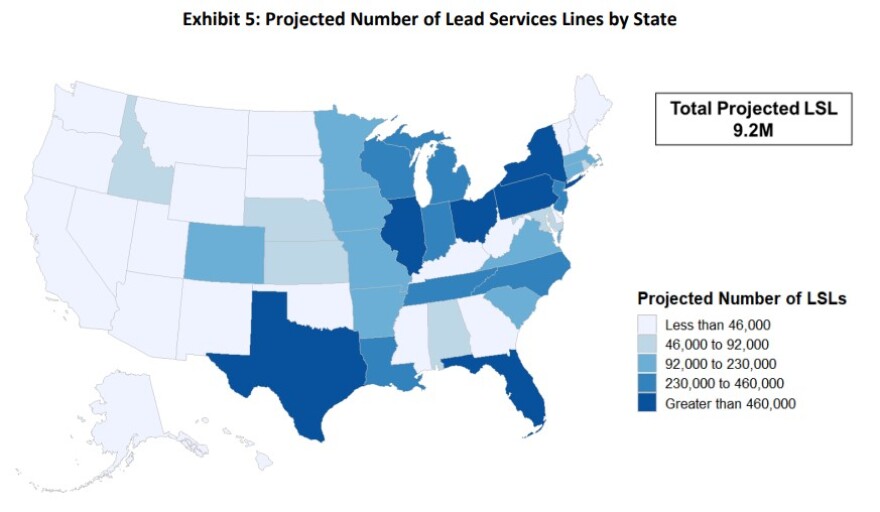The White House announced Tuesday it will provide $6.5 billion for drinking water infrastructure upgrades for all states across the country, including tribes and territories, in fiscal 2023.
The funding is through the Drinking Water State Revolving Fund, which is part of the Bipartisan Infrastructure Law signed by President Joe Biden in 2021.
Florida will get $376,162,000 from the U.S. Environmental Protection Agency, which is charged with disbursing the funds — $254,788,000 of which will go toward lead pipe removal for 2023.
It comes as Florida has emerged as the state with the most lead service lines in the nation with 1,159,300, according to survey results recently released by the EPA.
Health and food expert Erik Olson with the Natural Resources Defense Council told the Associated Press that Florida's latest figure is “a big surprise."
Back in 2021, the state had told his group it doesn't track lead service lines, so the NRDC estimated about 200,000 lead service lines were in Florida at the time.
Olson also told the AP that the larger Florida number is puzzling because lead pipes were most frequently installed in the decades before Florida's population rapidly grew. He added that his group is looking forward to an explanation.
The federal funding aims to, among other things, remove or replace all of the nation's lead pipe service lines over the next decade. Exposure to lead can cause brain damage and no amount is reportedly safe for children.
Wendi Wilkes, EPA’s Office of Water Senior Advisor, said during a press conference that her agency made sure every community — particularly disadvantaged ones — would receive money, but could not speak to how much lead pipe removal will come from this year's funds.
"This helps ensure that the states with the greatest need receive funds. And together we can make real progress on reducing the 9.2 million lead service lines across the country,” she said.
"The Biden-Harris administration is committed to strengthening the nation's water infrastructure while providing significant resources to address key challenges."
Ryan Berni, White House Senior Advisor for Infrastructure Implementation, said that the money will also go toward the managing of PFAS, or per- and polyfluoroalkyl substances. The EPA has recently proposed drinking water limits on these "forever chemicals.”
"These upgrades will fund anything from replacing pipes past their useful lives to helping systems purchase more reliable pumping equipment, protecting drinking water sources, addressing PFAS contamination, and of course, replacing lead pipes that can damage the health of children and families," he said.
Information from the Associated Press was used in this report.




